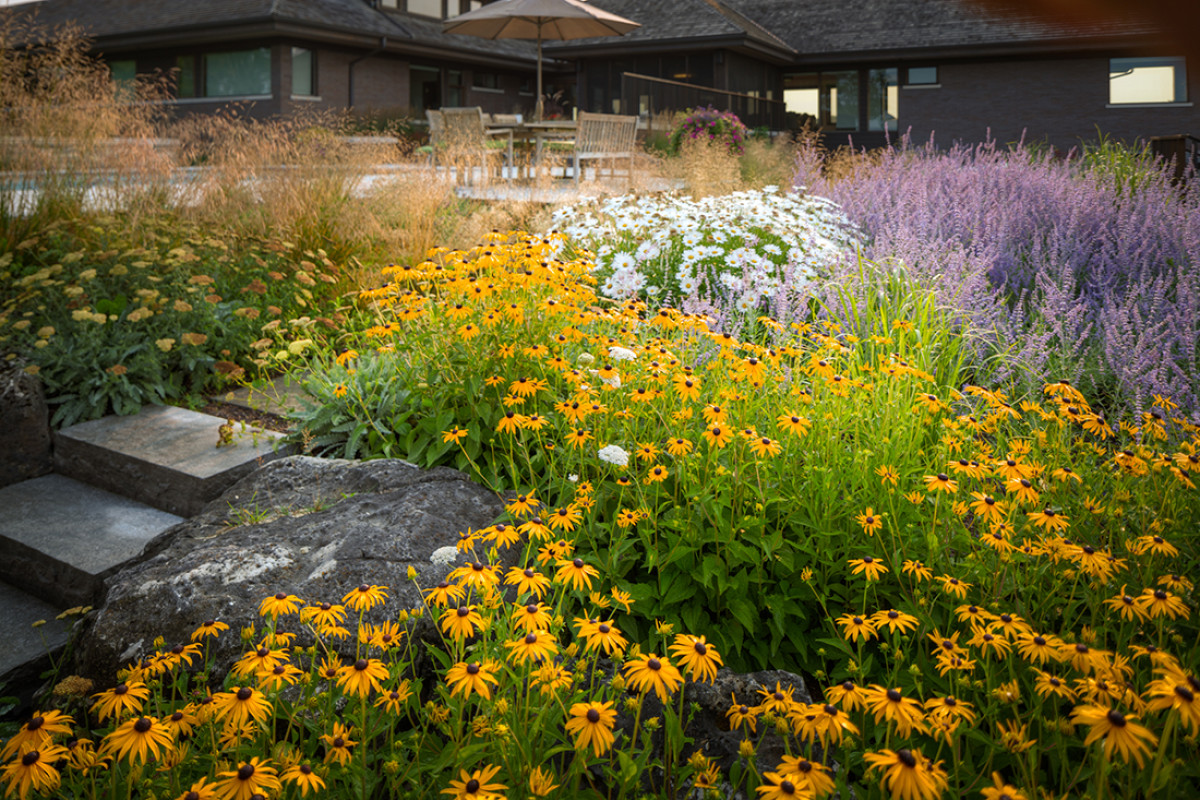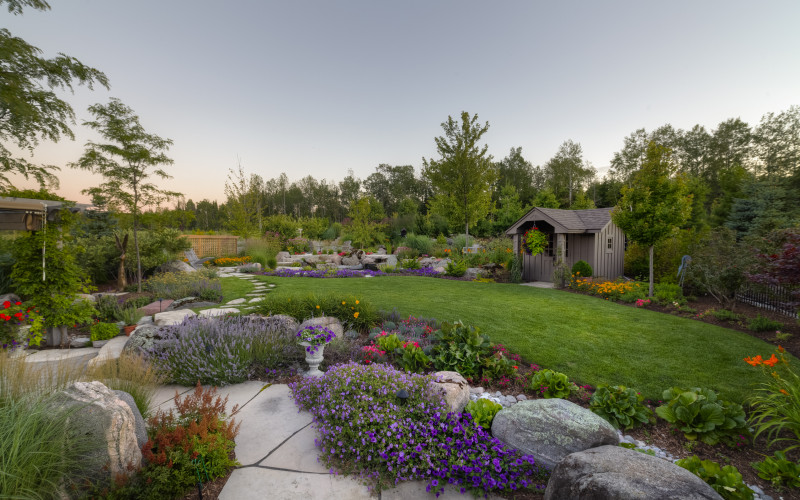Blog
How To Protect Your Investment With Landscape Maintenance

The care that’s put into your lawn and gardens during the spring and summer will determine the health of your landscape for the months and years to come. Whether it’s overgrown weeds, invasive plants or buckled patio stones, all sorts of issues can crop up as time goes on — unless proper care is taken.
The best way to protect your landscape investment is to maintain it with regular upkeep. Whether you’ve signed up for white-glove property care from the Landmark Group or are happy to do it yourself, we asked our property care crews for some of their basic landscape maintenance tips.
These tips can either help you as you do it yourself or give you some insight into how our experts do it.
1. Get out your gardening gloves.
Garden care is one of the pillars of landscape maintenance, and depending on the plants in yours, it can be tricky. Every garden has a diverse range of plants in it, all of them with different requirements to thrive.
Our suggestion is to get to know what you have in your gardens. Find out the names of all of the flowers and shrubs and then look up how to best care for them. If you don’t know what plants are in your garden, try the PlantSnap smartphone app.
Beyond that, stay on top of weeding, especially early on in the year. Once weeds get too large, they can be a nuisance to handle.

2. Make sure your lawn and garden stay hydrated.
For new plants, be sure to water them daily until they’re established. For established gardens, water once or twice a week.
As for the best time to water? Early morning is always best, as it prevents water from evaporating and gives the roots more time to absorb moisture.
A garden hose will do the job, but we recommend investing in a smart irrigation system, which gives your lawn and gardens the optimal amount of water. You can even program it with your smartphone through WiFi. Ask us to find out more.
3. Mow your lawn weekly.
Mowing your lawn seems like a straightforward task, but there are some key things to consider to make sure you do it best.
Mow your lawn every week or so, and make sure the blades are set to 2-½” to 3” (that’s 6 to 8 cm). Keep your blades sharp and switch up your mowing pattern from week to week so the grass blades grow straight.
4. Fertilize your lawn during the growing season.
For a lush and green lawn, be sure to fertilize. But don’t do it too often — 4 to 6 times is enough.
The best way to find out which kind of fertilizer to use is to perform a soil test using a kit you can purchase. Once you know what nutrients are already abundant in your soil, you can balance them out with the right N-P-K (nitrogen, phosphorus and potassium) level fertilizer.
For those who have registered for property care services with us, our team will perform soil tests for you.

5. Control your weeds with mulch.
Mulch can make caring for your garden a lot easier. Applying mulch to your gardens keeps the soil warm, prevents weed growth and helps plants retain moisture so you don’t need to water as much.
Generally, mid- to late spring is the best time to add mulch, as the soil is starting to warm up from the cold of winter.
Some weeds will poke through the mulch, and when they do it’s best to pull them by hand. Herbicides should be avoided and only used as a last resort.
6. Prune your trees and shrubs.
Pruning your trees and shrubs every couple of years is good for aesthetic and safety reasons, but also for the health of your tree.
Prune in the early winter, allowing the tree to recover before the summer heat rolls in. Pruning in spring, when the sap is flowing from the roots to the trunk and branches, robs the tree of essential nutrients.
Want to leave the work to the professionals?
If you have some gardening skills and are willing to put in the effort, these tips will help you protect your investment and maintain your landscape.
If you’d rather leave the hard work to us, you can do so by signing up for property care services with the Landmark Group. Note: this service is only available to past and present Landmark clients.


